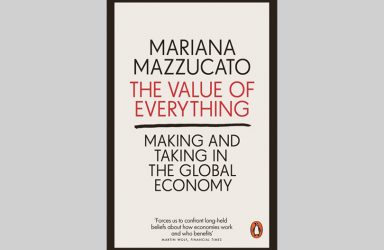Thinking Global Podcast – Sarrah Kassem
Sarrah Kassem speaks about the global politics of the platform economy, the alienation of Amazon workers, and how platform workers hold both power and agency globally.
Interview – Bryan Caplan
Bryan Caplan talks about terrorists as rational actors and government responses to terrorism, plus the benefits and challenges of an open borders policy.
Interview – Chris Blattman
Chris Blattman discusses the causes and unlikeliness of armed conflict and how it can be avoided.
Interview – Rubens Ricupero
Former Minister and Secretary General of UNCTAD, Rubens Ricupero, discusses Brazilian foreign policy and diplomacy, today’s environmental agenda, and the Real Plan.
Review – The Value of Everything
With an eclectic view on the economy, Mazzucato constructs a complex configuration of value creation beyond the tangible.
Interview – Adam Fabry
Adam Fabry talks about his book and research on Hungary, including economic and political changes, the origins of the far-right and alternative forms of resistance.
Interview – Ravi Neelakantan
Ambassador Ravi Neelakantan talks about the concept of good governance, digital freedom, India’s lack of a ‘grand strategy’, its economic ties and regional partnerships.
Interview – John M. Kirk
John M. Kirk discusses the new constitution in Cuba, the country’s shifting relationships in the region, US-Cuban relations, and the alleged ‘sonic attacks’ on diplomats.
Interview – Leonardo Martinez-Diaz
Leonardo Martinez-Diaz discusses sustainable finance, actionable data and how communities and governments can strengthen their resilience and prepare for climate change.
Review – The Economic Consequences of the Peace
The centenary edition of Keynes’ classic text is still a worthwhile read today, highlighting that Europe’s future relies on its cooperation.












